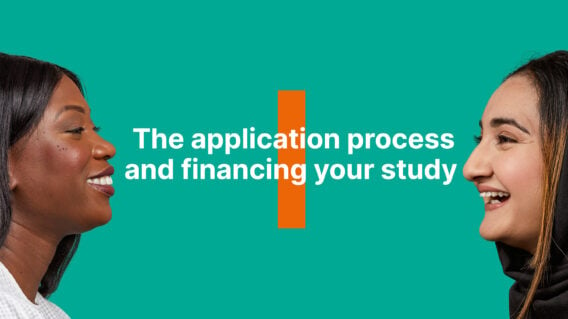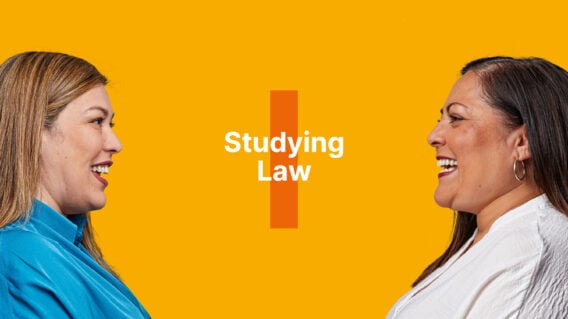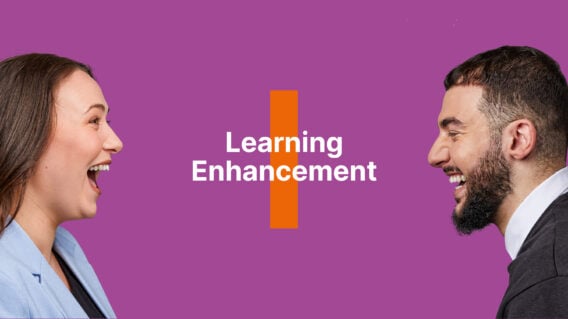Take your time to fully understand your law degree
Apply now to start in October 2025


Duration
3 years
Study mode
Full-time, Lectures, seminars and workshops 3 days per week
Start date
October
Awarding Body
Wrexham University
Fees year 1
Home: £9,250
International: £12,000
Location
Taught at our Central London campus.
UCAS code
LLB3
Entry Requirements
112 UCAS tariff points
Be work ready when you graduate
Law students can gain hands-on clinical experience by providing legal advice through the Bloomsbury Law Clinic.
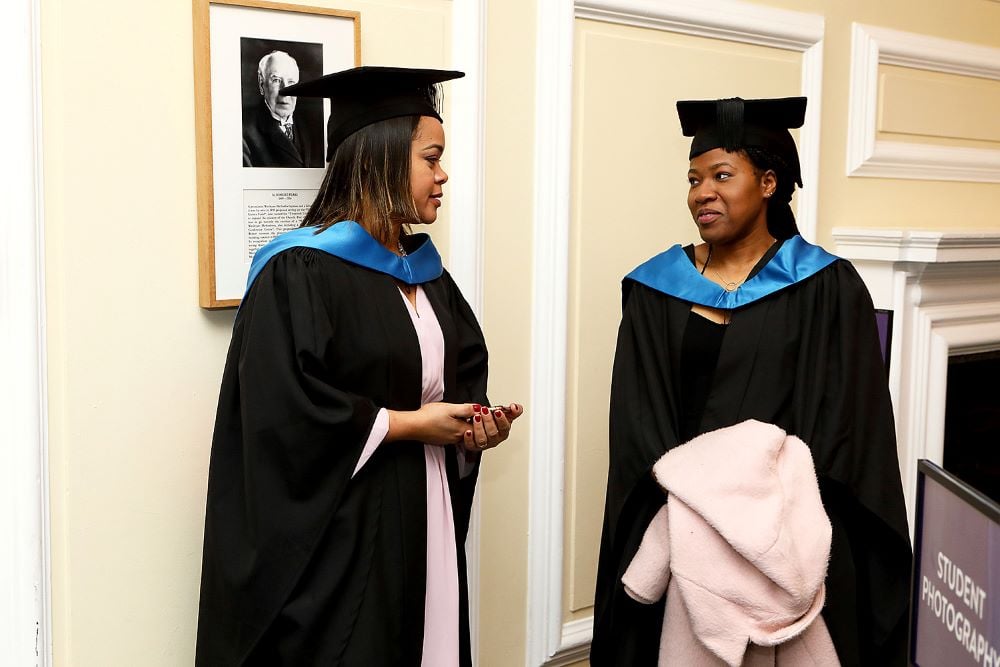
What’s it like studying law
I came here to discover something that I thought was lost to me, after 32 years of working in one company. For me, the support network in Bloomsbury is second to none – I’ve never known something to be so extensive.

Course Modules
Each module is worth 30 credits and all Level 4 modules are mandatory. There are four Level 4 modules and you will complete two modules in your first term of Year 1, and two in your second term of Year 1.
Are you ready to start studying English law? This module provides a broad understanding of legal methods and systems, including:
- the nature of law
- classifications of law
- sources of law
- doctrine of precedent that guide legal decision-making
- principles of statutory interpretation
- the court structure
- the personnel involved within the English legal system
- core principles of the law of contract.
You will also develop subject-specific and transferable skills which will enable you to study subsequent law modules with confidence.
Assessment
| Portfolio | 50% |
| Coursework | 50% |
An essential component of our LLB course, this module offers students the opportunity to develop their professional legal skills in a practical, hands-on setting.
Through this module, you’ll learn the professional legal clinical skills that you need to know to excel as a legal practitioner; from client care and professional conduct to collaborative working and file management. You’ll also learn how to conduct effective client interviews, conduct practical legal research, and hone your drafting and writing skills. You’ll also develop your Legal IT skills to achieve Westlaw UK Basic Certification and gain a deeper understanding of how artificial intelligence is set to transform the future delivery of legal services.
This module equips you with the skills necessary to undertake the role of Student Advisor in the Bloomsbury Law Clinic.
Assessment
| Coursework | 50% |
| Report | 50% |
This module provides a broad overview of the Law of Contract and tort allowing you to gain an understanding of the key aspects of civil litigation in the context of a contractual or tortious dispute.
Assessment
| Coursework | 50% |
| Project | 50% |
Our Public and EU Law module helps you to understand the legal and political framework that governs the UK today. The module is designed to give a comprehensive understanding of the UK’s constitution and the key principles that underpin it. By the time you complete the module, you’ll be able to analyse and explain the nature and functions of the UK’s constitution, and understand the impact of the European Convention on Human Rights on this constitution. You’ll also explore the role of the Human Rights Act 1998 in protecting citizens’ rights and freedoms, and examine the impact of EU Law on the UK’s constitution following Brexit.
You’ll also gain a deep understanding of how public bodies operate and the decision-making powers they hold. Throughout the module, you’ll learn about the grounds of judicial review and when and how to apply them to challenge the decisions made by public bodies.
Assessment
| Portfolio | 50% |
| Case study | 50% |
Each module is worth 30 credits and all Level 5 modules are mandatory. There are four Level 5 modules and you will complete two modules in Term 1 of Year 2, and two modules in Term 2 of Year 2.
Dive deep into the principles of criminal liability, exploring everything from strict liability offences to the ins and outs of homicide and specific defences. In this module you’ll also explore non-fatal offences against the person, property offences, attempts, and general defences, gaining a thorough understanding of the key aspects of criminal practice.
By the end of this module, you’ll have developed a broad knowledge and critical understanding of Criminal Law that will serve as a foundation for your future studies and career in the legal field. You’ll be able to think critically about complex legal issues, analyse cases, and apply legal principles to real-world scenarios.
Assessment
| Coursework | 50% |
| Portfolio | 50% |
This module provides a sound understanding of the key principles, rules, and concepts of Land Law. You’ll also develop the skills necessary to critically analyse and apply these concepts to solve practical problems. You will uncover the key principles and rules of conveyancing, the legal process of transferring the ownership of a property or piece of land from one person to another.
Assessment
| Coursework | 50% |
| Portfolio | 50% |
This module delves into Equity, Wills and Probate. You will develop a comprehensive understanding of the fundamental principles, rules and concepts that govern these areas of law, and be equipped with the knowledge to critically analyse and apply them to real-life scenarios. From trusts to wills and probate, you will explore the intricacies of these legal concepts and gain a deep appreciation of their relevance and importance in contemporary legal practice.
Assessment
| Coursework | 50% |
| Case study | 50% |
In the fast-paced world of law, it’s important to not only have a solid grasp of the legal principles but also to conduct yourself with the utmost professionalism and adhere to strict ethical standards. That’s where the Conduct, Professional Ethics and Accounts module comes in.
Through this module, you will gain a broad understanding of conduct regulations such as the SRA and CILEx Codes of Conduct. You will also learn the ins and outs of the CILEx Accounts Rules, giving you the skills to manage legal finances with confidence.
The module also covers Legal IT skills, including advanced certification in Westlaw UK, and delves into the future of legal services with a focus on artificial intelligence. By completing this module, you’ll be well-equipped to navigate the ever-changing landscape of legal practice with the highest level of professionalism and expertise.
Assessment
| Coursework | 50% |
| Report | 50% |
Term 1
Each module is worth 30 credits, and no modules are mandatory at Level 6. You must complete four Level 6 modules in total: two in Term 1 and two in Term 2.
Modules are not fixed to a particular term and may be studied in either Term 1 or Term 2, depending on your point of entry.
All optional modules are delivered subject to sufficient student demand. If an optional module cannot be delivered, a student can complete an Independent Learning Module and base their study around the content of the optional module.
In this module, you will gain a comprehensive understanding of the key principles and techniques of Civil Litigation and Advocacy. You will develop your advocacy skills and learn how to apply them to real-life situations. Moreover, you will learn about legal professional ethics and how they apply to Civil Litigation matters. You will also become familiar with the duties of an adviser and advocate in this field.
By the end of this module, you will be able to provide practical advice and assistance on Civil Litigation and Advocacy matters. This will equip you to handle specific legal situations with confidence and skill.
Assessment
| Presentation | 50% |
| Project | 50% |
You will develop a critical understanding of the legal framework governing immigration, including the Human Rights Act, EU Law, and the UK’s immigration rules on our Immigration Law and Practice module.
In addition, you will explore the ethical considerations surrounding immigration cases and gain practical skills to apply your legal knowledge in real-life situations. Through case studies and scenarios, you will learn how to provide effective advice and assistance to clients in various immigration matters, including visa applications, asylum claims, and deportation proceedings.
Assessment
| Portfolio | 50% |
| Case study | 50% |
If you are interested in the buying or selling of properties, then you’ll love our Conveyancing module! The module aims to equip students with a comprehensive understanding of the ins and outs of Conveyancing. You’ll learn about legal professional ethics as they apply to Conveyancing matters, and gain the skills to critically analyse and apply key issues in practical situations. By the end of the module, you’ll be able to provide expert advice and assistance on Conveyancing matters.
Assessment
| Portfolio | 50% |
| Case study | 50% |
Our internship module offers an exciting opportunity for students to gain hands-on experience in a real-life legal setting. This module will provide you with the chance to apply your knowledge and analytical skills to real-world legal issues and develop practical solutions.
In addition to gaining valuable work experience, this module will also give you a deeper understanding of the culture and structure of a working legal environment. You’ll develop new capabilities and skills, and engage in reflective practice, all of which will be invaluable as you move forward in your legal career.
This module will only be available in Term 2 and is not available to International students.
| Report | 70% |
| Reflective practice | 30% |
If you are passionate about upholding justice and protecting the rights of the accused then this module is for you. Criminal Litigation and Advocacy are examined in this module which aims to equip you with the essential knowledge and skills required to become a successful criminal lawyer.
With a broad, detailed, and systematic understanding of the key aspects of Criminal Litigation and Advocacy, you’ll learn how to develop key advocacy skills and techniques that will help you to navigate the complexities of the legal system. You’ll also explore the principles of legal professional ethics as they apply to Criminal Litigation matters and the duties of the adviser and advocate.
Through practical exercises, case studies, and real-life scenarios, you’ll apply your knowledge to provide practical advice and assistance within the context of specific legal situations.
Assessment
| Presentation | 50% |
| Project | 50% |
You’ll learn how to identify and critically analyse key legal issues that arise in the context of business transactions, and provide practical solutions to complex legal problems in our Business Law and Practice Module. You’ll explore topics such as contract law, company law, intellectual property law, and employment law, and gain an understanding of the legal and regulatory framework that governs business activities.
You’ll gain a comprehensive understanding of the legal aspects of running a business, from contracts to company formation, and everything in between. We’ll also delve into the ethical considerations that come with advising businesses, ensuring you’re equipped to navigate the complex landscape of business law.
Assessment
| Portfolio | 50% |
| Case study | 50% |
Imagine being able to help individuals and families plan for their future and protect their assets; that’s what our Wills and Probate Practice module is all about. With a focus on practical application, you’ll gain a thorough understanding of the legal principles involved in drafting wills, administering estates, and handling trusts. You’ll also develop critical thinking skills as you learn to analyse complex legal issues and provide tailored advice to clients.
By the end of this module, you’ll be equipped to apply the key principles of legal professional ethics to Wills and Probate Practice matters, and provide practical assistance within the context of specific legal situations.
Assessment
| Portfolio | 50% |
| Case study | 50% |
Unlock your research potential with the Dissertation module. This module empowers you to choose an area of law that truly ignites your passion, dive deep into your research, and showcase your extensive knowledge in a thought-provoking dissertation. As you explore your chosen topic, you’ll develop the key skills that all graduates need – independent learning, synthesis, critical analysis, and evaluation. Through this journey, you’ll demonstrate your ability to think creatively and critically, making a valuable contribution to the legal field.
This module will only be available in Term 2 but classes will take place in Term 1.
Assessment
| Research proposal | 10% |
| Dissertation | 90% |
We use oral assessments, presentations, simulations, group, and individual, projects in addition to traditional assessment methods (examinations and coursework) so that you can explore and express your abilities in different ways. Assessments are not just a way of assessing whether something has been learned, but an opportunity to develop skills that will equip you in your future life and career.
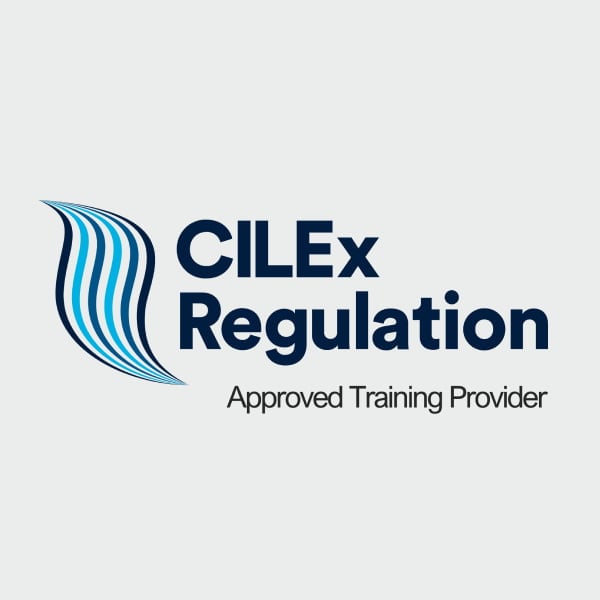
Our LLB course is the first and only LLB course to be accredited by the Chartered Institute of Legal Executives (CILEx) Regulation. Our graduates will be exempt from the whole CILEx professional education standards assessments should they choose to register as a Chartered Legal Executive.

You can complete an internship module as part of this course and expand your knowledge through the practical application of legal theory. Our Careers Hub also helps students to take part in paid and voluntary positions.
- 112 UCAS tariff points.
- If you do not meet these requirements, you may be considered as a non-standard applicant.
- Diploma / Technical Diploma / Grade 14
- International applicants for whom English is a second language require IELTS for UKVI Academic at 6.0 (minimum 5.5 in each skill sub-set). We also accept the Password Skills Plus Test.
- Brevet de Technicie Supérieur
- International applicants for whom English is a second language require IELTS for UKVI Academic at 6.0 (minimum 5.5 in each skill sub-set). We also accept the Password Skills Plus Test.
- Título de Técnico Profesional
- Título de / Título de Técnico Superior
- International applicants for whom English is a second language require IELTS for UKVI Academic at 6.0 (minimum 5.5 in each skill sub-set). We also accept the Password Skills Plus Test.
- Diploma
- Associate Degree
- International applicants for whom English is a second language require IELTS for UKVI Academic at 6.0 (minimum 5.5 in each skill sub-set). We also accept the Password Skills Plus Test.
- Bachelor Degree (when studied for 2 or 3 years)
- International applicants for whom English is a second language require IELTS for UKVI Academic at 6.0 (minimum 5.5 in each skill sub-set). We also accept the Password Skills Plus Test.
- Indian School Certificate (Year 12)
- Diploma (from a TVET Institution)
- International applicants for whom English is a second language require IELTS for UKVI Academic at 6.0 (minimum 5.5 in each skill sub-set). We also accept the Password Skills Plus Test.
- Título de Auxiliar Técnico
- Título de Técnico (Ensino Médio)
- Curso Superior de Formação Especifíca
- International applicants for whom English is a second language require IELTS for UKVI Academic at 6.0 (minimum 5.5 in each skill sub-set). We also accept the Password Skills Plus Test.
- Técnico Superior
- Técnico Universitario
- Grado de Bachiller (when studied for 2 years)
- International applicants for whom English is a second language require IELTS for UKVI Academic at 6.0 (minimum 5.5 in each skill sub-set). We also accept the Password Skills Plus Test.
- Técnico Profesional
- International applicants for whom English is a second language require IELTS for UKVI Academic at 6.0 (minimum 5.5 in each skill sub-set). We also accept the Password Skills Plus Test.
- Diplomado
- Técnico Superior
- International applicants for whom English is a second language require IELTS for UKVI Academic at 6.0 (minimum 5.5 in each skill sub-set). We also accept the Password Skills Plus Test.
- Al-Azhar Training Diploma
- Diploma from Technical / Commercial / Industrial / Health institutes
- International applicants for whom English is a second language require IELTS for UKVI Academic at 6.0 (minimum 5.5 in each skill sub-set). We also accept the Password Skills Plus Test.
- Técnico en [Subject Area]
- International applicants for whom English is a second language require IELTS for UKVI Academic at 6.0 (minimum 5.5 in each skill sub-set). We also accept the Password Skills Plus Test.
- Ghana Education Service: Diploma in Business Studies
- University Certificate or Diploma
- International applicants for whom English is a second language require IELTS for UKVI Academic at 6.0 (minimum 5.5 in each skill sub-set). We also accept the Password Skills Plus Test.
- Técnico (Universitario) / Diplomado
- International applicants for whom English is a second language require IELTS for UKVI Academic at 6.0 (minimum 5.5 in each skill sub-set). We also accept the Password Skills Plus Test.
- Hong Kong Diploma of Secondary Education (HKDSE)
- Diploma in General Studies
- Foundation Diploma / Diploma of Foundation Studies
- Professional Diploma (from the Vocational Training Council)
- Diploma (from the Vocational Training Council or a Polytechnic)
- Diploma Yi Jin
- Advanced Diploma
- Higher Certificate
- International applicants for whom English is a second language require IELTS for UKVI Academic at 6.0 (minimum 5.5 in each skill sub-set). We also accept the Password Skills Plus Test.
- India Standard XII Central Government Boards: 65%
- Council for Indian School Certificate Examination (CISCE)
- Central Board of Secondary Education (CBSE)India Standard XII State Boards: 70%
- International applicants for whom English is a second language require IELTS for UKVI Academic at 6.0 (minimum 5.5 in each skill sub-set). We also accept the Password Skills Plus Test.
- Ijazah – Sekolah Menengah Kejuruan / Madrasah Aliyah Kejuruan (when studied for 4 years or more)
- Diploma I (D1)
- Diploma II (D2)
- International applicants for whom English is a second language require IELTS for UKVI Academic at 6.0 (minimum 5.5 in each skill sub-set). We also accept the Password Skills Plus Test.
- High School Diploma – Theoretical Stream
- High School Diploma – Technical and Vocational Stream
- High School Diploma – Work and Knowledge Stream
- First Degree Technician’s Certificate
- International applicants for whom English is a second language require IELTS for UKVI Academic at 6.0 (minimum 5.5 in each skill sub-set). We also accept the Password Skills Plus Test.
- Diploma of Technician
- International applicants for whom English is a second language require IELTS for UKVI Academic at 6.0 (minimum 5.5 in each skill sub-set). We also accept the Password Skills Plus Test.
- Community College Diploma
- International applicants for whom English is a second language require IELTS for UKVI Academic at 6.0 (minimum 5.5 in each skill sub-set). We also accept the Password Skills Plus Test.
- Diploma / Certificate from PAAET College
- Diploma / Certificate from PAAET Institute
- International applicants for whom English is a second language require IELTS for UKVI Academic at 6.0 (minimum 5.5 in each skill sub-set). We also accept the Password Skills Plus Test.
- Diplôme de Technicien Supérieur
- Diplôme Universitaire de Technologie
- International applicants for whom English is a second language require IELTS for UKVI Academic at 6.0 (minimum 5.5 in each skill sub-set). We also accept the Password Skills Plus Test.
- Certificate
- Diploma
- DVM
- Foundation in [Subject Area]
- Matrikulasi
- STPM
- International applicants for whom English is a second language require IELTS for UKVI Academic at 6.0 (minimum 5.5 in each skill sub-set). We also accept the Password Skills Plus Test.
- International Advanced (A) Level / Higher Secondary School Certificate
- Diploma / Advanced Diploma
- Foundation Studies Level II
- International applicants for whom English is a second language require IELTS for UKVI Academic at 6.0 (minimum 5.5 in each skill sub-set). We also accept the Password Skills Plus Test.
- International Advanced (A) Level / Higher Secondary School Certificate
- Diploma / Advanced Diploma
- Foundation Studies Level II
- International applicants for whom English is a second language require IELTS for UKVI Academic at 6.0 (minimum 5.5 in each skill sub-set). We also accept the Password Skills Plus Test.
- Diplome du Baccalauréat Technique with a minimum of 10 points (out of 20)
- Attestation du Baccalauréat with a minimum of 14 points (out of 20)
- International Baccalaureate with a minimum of 24 points
- International applicants for whom English is a second language require IELTS for UKVI Academic at 6.0 (minimum 5.5 in each skill sub-set). We also accept the Password Skills Plus Test.
- Associate Degree / Diploma (when studied for 2 years or more)
- International applicants for whom English is a second language require IELTS for UKVI Academic at 6.0 (minimum 5.5 in each skill sub-set). We also accept the Password Skills Plus Test.
- Diploma (CTEVT)
- Diploma (Tribhuvan University)
- International applicants for whom English is a second language require IELTS for UKVI Academic at 6.0 (minimum 5.5 in each skill sub-set). We also accept the Password Skills Plus Test.
- National Diploma
- International applicants for whom English is a second language require IELTS for UKVI Academic at 6.0 (minimum 5.5 in each skill sub-set). We also accept the Password Skills Plus Test.
- Post School Diploma
- International applicants for whom English is a second language require IELTS for UKVI Academic at 6.0 (minimum 5.5 in each skill sub-set). We also accept the Password Skills Plus Test.
- Associate Degree
- Bachelor Degree (when studied for 2 or 3 years)
- International applicants for whom English is a second language require IELTS for UKVI Academic at 6.0 (minimum 5.5 in each skill sub-set). We also accept the Password Skills Plus Test.
- Técnico (Superior) en [Subject Area]
- International applicants for whom English is a second language require IELTS for UKVI Academic at 6.0 (minimum 5.5 in each skill sub-set). We also accept the Password Skills Plus Test.
- Diploma / Associate (when studied for 2 years or more)
- International applicants for whom English is a second language require IELTS for UKVI Academic at 6.0 (minimum 5.5 in each skill sub-set). We also accept the Password Skills Plus Test.
- Associate Degree
- International applicants for whom English is a second language require IELTS for UKVI Academic at 6.0 (minimum 5.5 in each skill sub-set). We also accept the Password Skills Plus Test.
- Diploma from a Technical College / Vocational Institute
- Diploma from a Health College / Institute
- Associate Degree
- International applicants for whom English is a second language require IELTS for UKVI Academic at 6.0 (minimum 5.5 in each skill sub-set). We also accept the Password Skills Plus Test.
- NUS High School Diploma
- Singapore / Cambridge GCE A Level
- Higher National ITE Certificate (Higher NITEC)
- Polytechnic Certificate
- International applicants for whom English is a second language require IELTS for UKVI Academic at 6.0 (minimum 5.5 in each skill sub-set). We also accept the Password Skills Plus Test.
- National Certificate (Vocational) Level 4
- Advanced Certificate
- Higher Certificate (Level 5)
- International applicants for whom English is a second language require IELTS for UKVI Academic at 6.0 (minimum 5.5 in each skill sub-set). We also accept the Password Skills Plus Test.
- Associate Degree / Junior College Diploma (when studied for 2 years)
- International applicants for whom English is a second language require IELTS for UKVI Academic at 6.0 (minimum 5.5 in each skill sub-set). We also accept the Password Skills Plus Test.
- Sri Lankan General Certificate of Education (Advanced Level)
- International applicants for whom English is a second language require IELTS for UKVI Academic at 6.0 (minimum 5.5 in each skill sub-set). We also accept the Password Skills Plus Test.
- Diploma from a Higher Institution
- International applicants for whom English is a second language require IELTS for UKVI Academic at 6.0 (minimum 5.5 in each skill sub-set). We also accept the Password Skills Plus Test.
- Vocational High School Diploma
- Associate Degree / Junior College Diploma
- International applicants for whom English is a second language require IELTS for UKVI Academic at 6.0 (minimum 5.5 in each skill sub-set). We also accept the Password Skills Plus Test.
- Certificate of Vocational Education (Paw Waw Chaw)
- Certificate of Higher Vocational Education (Paw Waw Saw)
- Associate Degree / Diploma
- International applicants for whom English is a second language require IELTS for UKVI Academic at 6.0 (minimum 5.5 in each skill sub-set). We also accept the Password Skills Plus Test.
- Diplôme d’Études Supérieures de Technologie (DEST)
- Brevet de Technicien Supérieur
- Diplôme Universitaire d’Études Littéraires (DUEL) / Scientifiques (DUES)
- Diplôme d’Études Universitaire de Premier Cycle (DEUPC)
- International applicants for whom English is a second language require IELTS for UKVI Academic at 6.0 (minimum 5.5 in each skill sub-set). We also accept the Password Skills Plus Test.
- Associate Degree (Ön-Lisans Diplomasi)
- Master Trainer Certificate (Usta Öğreticilik Belgesi)
- International applicants for whom English is a second language require IELTS for UKVI Academic at 6.0 (minimum 5.5 in each skill sub-set). We also accept the Password Skills Plus Test.
- Higher College of Technology Diploma
- Higher College of Technology Advanced Diploma
- University Diploma
- Associate Degree
- International applicants for whom English is a second language require IELTS for UKVI Academic at 6.0 (minimum 5.5 in each skill sub-set). We also accept the Password Skills Plus Test.
- Intermediate Professional Education Diploma
- Vocational Intermediate Diploma
- Associate Degree
- Vocational College Diploma / Vocational Associate Degree
- International applicants for whom English is a second language require IELTS for UKVI Academic at 6.0 (minimum 5.5 in each skill sub-set). We also accept the Password Skills Plus Test.
- Diploma (from a University)
- Higher Diploma (from a Community College)
- Certificate in Technical Education
- International applicants for whom English is a second language require IELTS for UKVI Academic at 6.0 (minimum 5.5 in each skill sub-set). We also accept the Password Skills Plus Test.

How the application process works
Complete the application form to let us know which course you would like to study and your existing qualifications.
Apply for Student Finance as soon as you have submitted your application to avoid delays.
You will be offered a place if you meet the entry requirements, or, invited to an Admissions Assessment.
International applicants are issued a CAS or may take a Pre-CAS Interview in order to gain a Student visa.
Welcome to Bloomsbury Institute! Enrolment and Induction take place the week before your studies begin.

We pride ourselves on supporting each and every student on an individual basis. Disabilities, long-term medical conditions, or specific learning difficulties are never barriers to success at Bloomsbury Institute.

This course is accredited by CILEx Regulation. Accreditations and body memberships increase the value of your degree and in turn your employment prospects.

Our Student Guild is here to support you, enhance your experience and represent your views. The Guild is student-led so get involved and help improve the Bloomsbury experience for you and fellow students.

Don’t let the cost of travel prevent you from success in your studies. Travel Bursaries (covering Transport for London’s Zones 1 – 6) are available to all students funded through the Student Loans Company.
Please note: From October 2025, the Travel Bursary will be replaced by a Household Income Bursary and Childcare Grant. This change offers students flexibility and additional support based on individual needs. For more information, including eligibility criteria, click here and go to page 28.
Home student fees apply to students who do not require a Student Visa to study in the UK (e.g. UK and Irish citizens; EU citizens with settled or pre-settled status).
International fees apply to students who need a Student Visa to study in the UK.
Gain a greater insight into learning
Do you have any question about studying with us? Check out our Podcast series, Insights into Learning, that covers all the issues that applicants frequently ask us.
You will gain insights from our subject experts and learn more about life at Bloomsbury Institute.


The Bloomsbury Institute difference

Students build up their hours on course, for example via Bloomsbury Law Clinic.

In the heart of London’s education quarter, with access to Birkbeck’s vast library and resources.

As soon as International students are enrolled on the pre-sessional programme or their degree course, they will have access to Student Circus, providing a wealth of vacancies, support, employability courses and resources.

The Student visa entitles students to work 20 hours per week, full-time during vacation, and on successful course completion they receive a further two-year Graduate visa.
Explore more law courses
Duration:
2 YearsStudy:
Full-TimeStart:
October